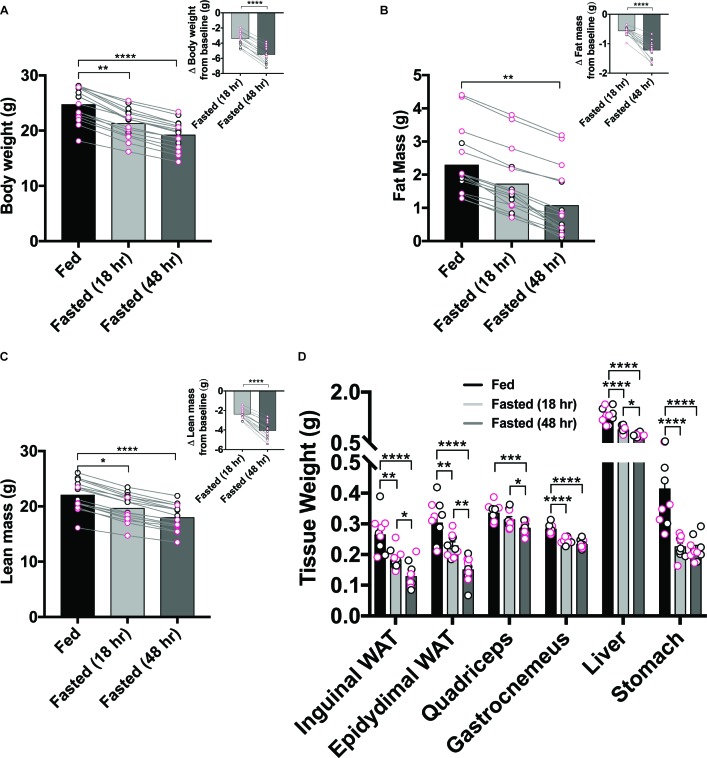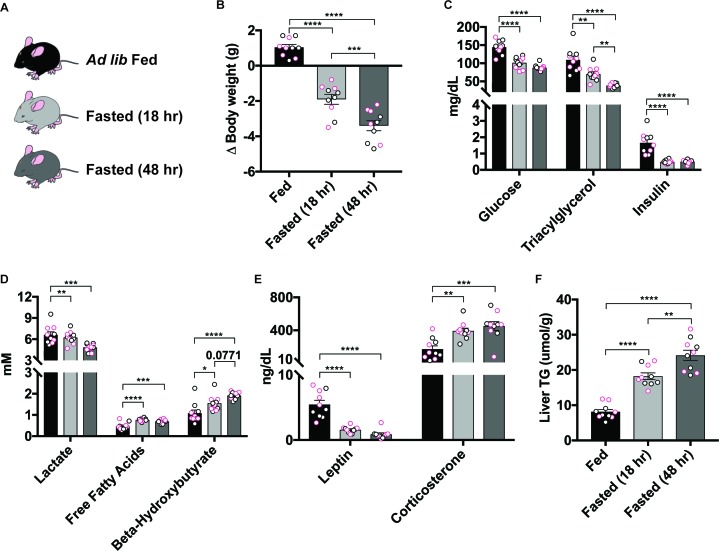Figure 1. Prolonged food-deprivation leads to more pronounced changes in rodent physiology.
(A–F) 18 hr food restriction reduced body weight (A), fat mass (B), lean mass (C), and tissue weights of inguinal WAT, epididymal WAT, quadriceps, gastrocnemius, liver and stomach (D) in both males and female mice, and was further accentuated following 48 hr restriction. Data points outlined in black indicate males; n = 5, Data points outlined in pink indicate females; n = 5 per group, values are means ± SEM. *p<0.05, **p<0.01, ***p<0.001.


